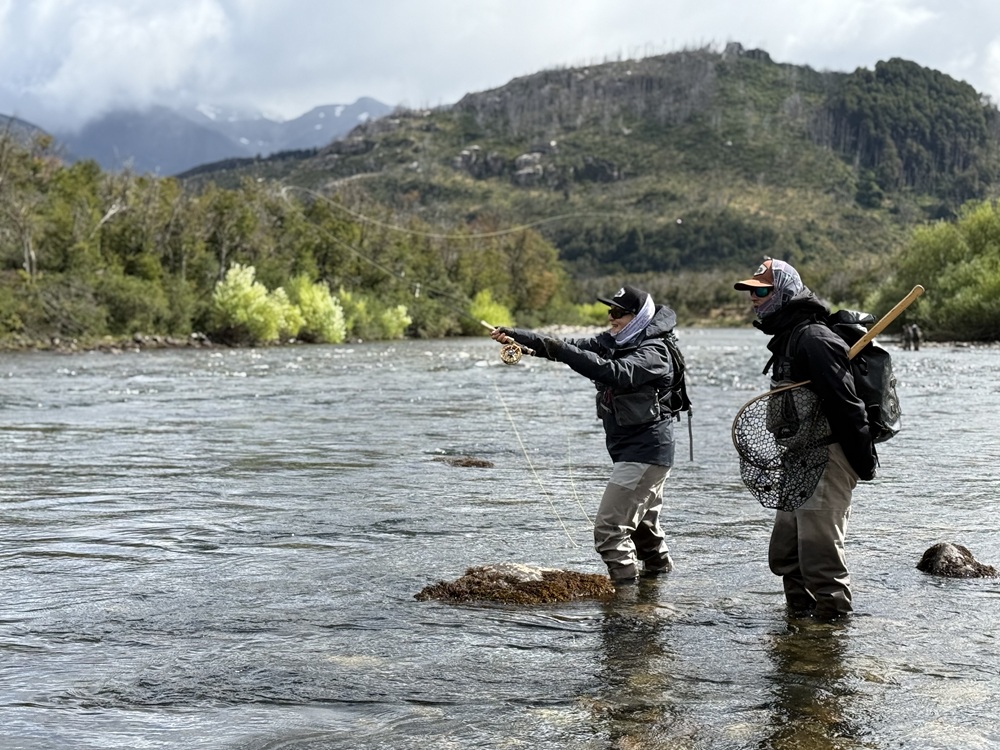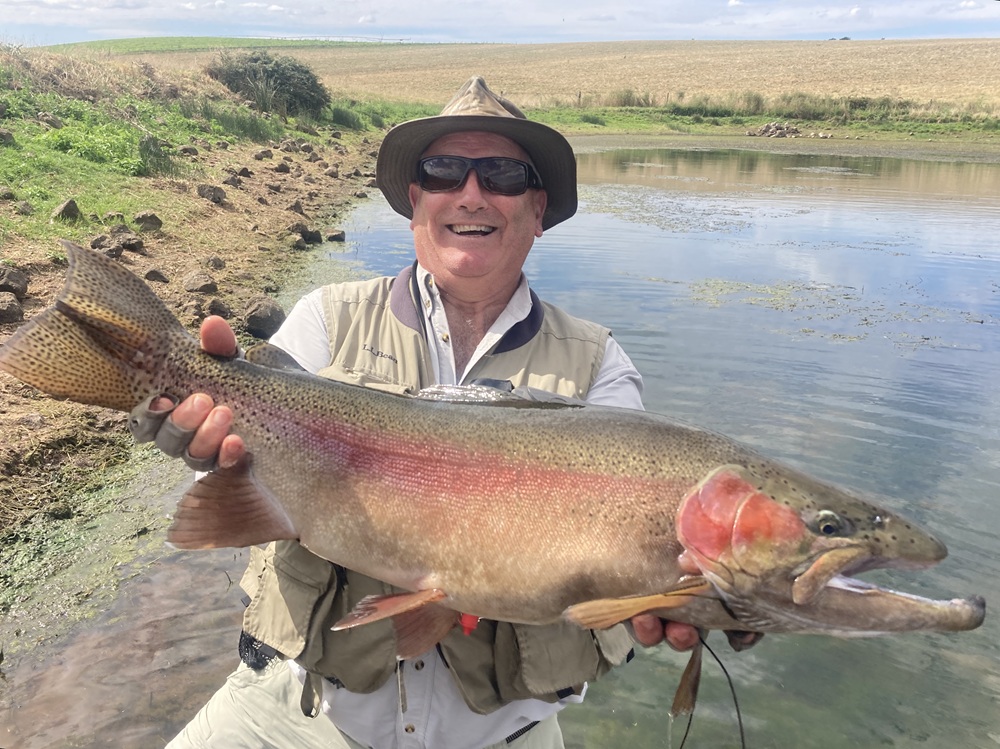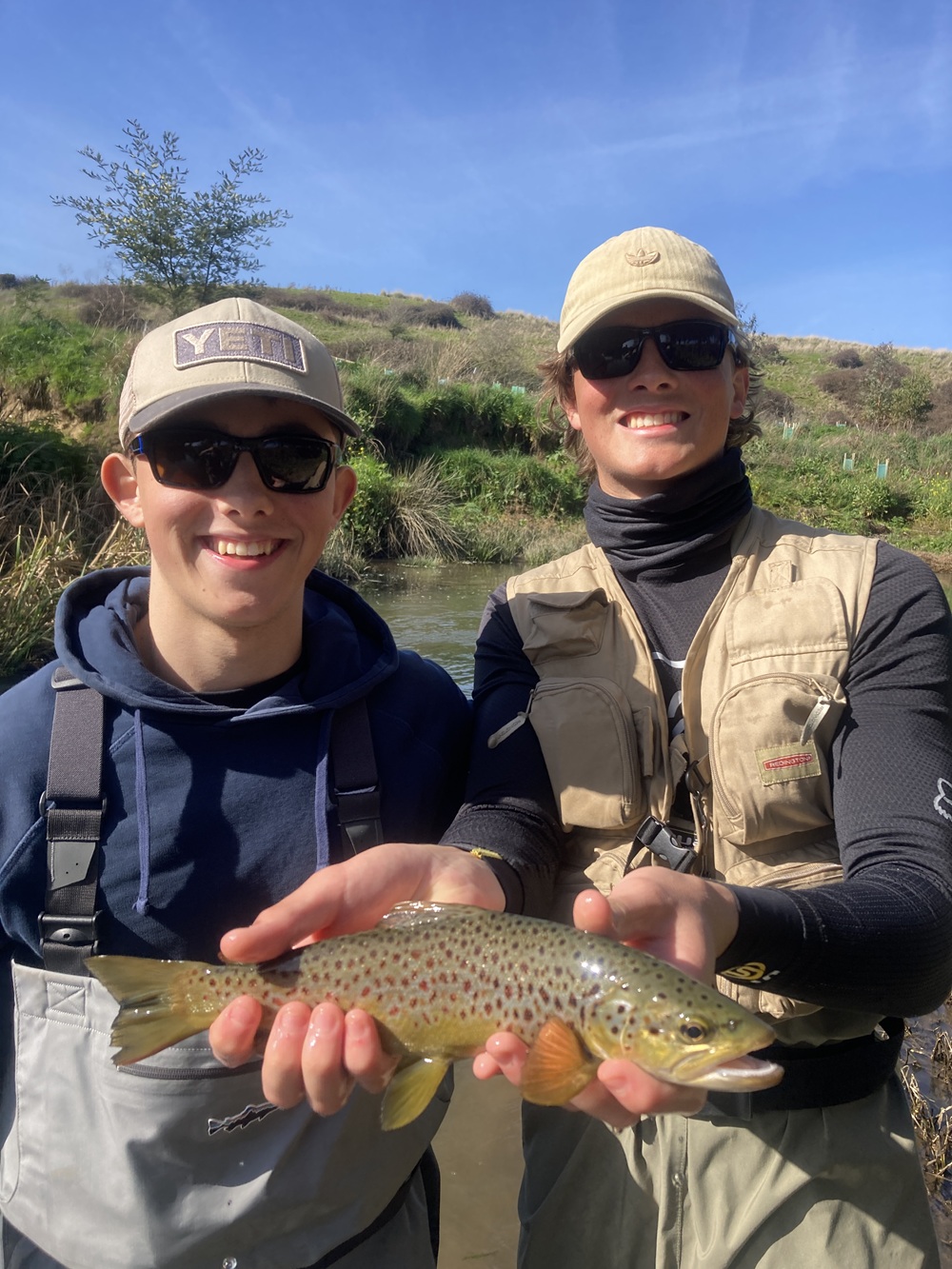
When you yell out 'Let it run!' to a novice flyfisher, you need to have explained what that means beforehand.
One of the important people in my life recently shared a professional exchange which would have done Working Dog’s ‘Utopia’ series proud. Just a sample of the jargon included, ‘categorisation guides’, ‘impact mapping tables’ and ‘forum synthesis.’ I’m not making this up.
It got me thinking about language, and how we use it in flyfishing. I have the privilege of regularly helping beginners get started in our sport, and I also often fish with experienced anglers. Over time, I’ve learnt to tailor my words to match the company, although I still get the odd confused look from a novice when I inadvertently slip up…
Sometimes, this occurs in a time-critical moment, like when a beginner is unaware their fly has just been eaten. ‘Strike!’ I’ll yell… only to realise that I neglected to explain earlier, while in the cosy and relaxed atmosphere of the lakeside cabin, what ‘strike’ means in this context. Down tools? Hit someone? Undertake a military attack? Granted, the last one is unlikely on a learn-to-flyfish day. But so to, for the uninitiated, is using the word to describe decisively lifting the rod tip to set the hook in a fish’s mouth.

Hopefully, this angler already knows what 'Strike!' means before her guide shouts the word. (Kiel Jones pic.)
A possibly even more fraught example, and again one applied when time is of the essence, is advising a beginner to let a big fish take line. ‘Let it run!’ is what I’ll normally shout. However, this is a fairly meaningless instruction unless, again, I’ve taken the time earlier to explain the term in this context. At least it’s not quite as confusing as the story I heard recently of a guide pleading, ‘Let it go!’ to a novice client hooked up tight on a big, fast river. Apparently, the client’s panicked response was to literally drop their rod in the water.
Among longer-term fishing mates, it’s not uncommon to use words in a way that, to an outsider, might be confusing. I know with my fishing friends, this isn’t an attempt at a secret code; it’s merely a consequence of time on the water together generating a kind of shorthand. When I meet up with JD back at the car and he says he caught a ‘real one’, he’s is not trying to distinguish between an actual fish and one of fantasy. What he actually means is, his catch was of sufficient size to be noteworthy. While it probably wasn’t enormous (that might be a beauty, a ripper, or possibly even a monster), it was certainly large enough to stand out from any other fish he caught.
On this smallish stream, this trout certainly qualifies as a 'real one', and probably as a 'good fish' too.
Which brings me to discuss fish size generally – a whole other area of angling vocabulary. For some flyfishers (especially on YouTube!), it seems every fish caught is a ‘good fish’, and arguably, that’s fair enough: each fish caught on fly is undeniably a success of sorts. For others though, the announcement that a member of the party has landed a 'good fish', is reason to stop casting, sit down on the nearest log, and hear the whole story.
To add to the confusion, in flyfishing circles, fish size is relative. Even for the most measured angler, what might have the dimensions of a ‘big fish’ from a small, infertile creek, may be dismissed as a ‘little one’ on a food-rich lake. And then there’s the element of individual experience. In my mid-teens, the 2 pound brown I somehow fumbled deep in a Bundarra River gorge seemed ‘huge’; its last-moment loss a tragedy of Shakespearean proportions. Nowadays, I would still be disappointed to lose that fish, but I wouldn’t think of it as ‘huge’.

'Huge', 'monster', 'beauty', 'ripper' ... with a trout this big, you can take your pick without fear of being misunderstood!
Then there are all those words we flyfishers use which are literally meaningless to the likes of my mother-in-law. Nymphing, mending, bubble-line, wind-lane, slow take, drag, backing, dubbing, whip-finish and tippet are just some words that are either unknown, or used so obscurely in the flyfishing context, they must sound like nonsense.
As far as I can tell, flyfishing language was never deliberately designed to confuse or exclude – it’s just how things have sometimes turned out. Woolly Bugger anyone?
Philip Weigall
Editor












